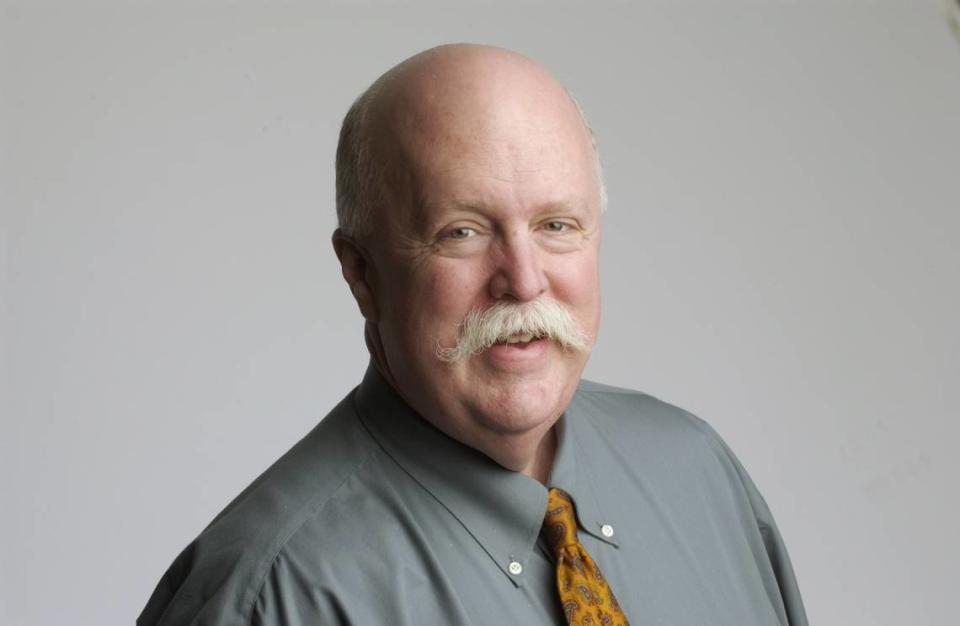Gordon Lightfoot’s words always pulled me through troubling times | Opinion
Sometimes it’s an uncle or aunt or grandmother or best friend or teacher — the person who appears in one’s life at a time of trauma and offers the hand that pulls you through it.
For me, in the summer or fall of 1968, it was a then-little known Canadian folksinger named Gordon Lightfoot.
My parents and I had moved to Winston-Salem from the hometown of Raleigh for my father’s career, a move for which he later apologized — after he did some reading that said the absolute worst time to move a kid was in the middle of high school. I told him it was OK. But it wasn’t really; it was awful. I was an only child in a new town with no friends.

One of the friends I’d had in Raleigh from childhood (both of us were 15) called to say she had tickets to see this folksinger at Wake Forest University and her mother would bring her up to Winston and she and I could go to the concert. I wasn’t nuts about the idea, but we went to Wait Chapel on the Wake Forest campus and there saw a trio headed by a curly-headed guitar player singing his own songs. “For Lovin’ Me” and “Early Morning Rain” had been hits for Peter, Paul & Mary, but Lightfoot, then just 30, would wait a good while before he hit it big with “If You Could Read My Mind,” “Sundown,” and “The Wreck of the Edmund Fitzgerald.”
His career would span more than another half-century after that night — and I’d see him 20 times more and on one night in Greensboro, I’d have dinner with him and the band backstage.
I last saw him in Greensboro again, shortly before COVID brought live shows to a halt. He was aching from a fall, moving slowly and shortening the show a bit. At 80, he was thinner of voice but still adored by the fans who’d jammed the Carolina Theatre downtown to capacity. Lightfoot was to come back after COVID, but the announcement a few weeks ago that he was canceling shows for this year had an ominous tone to it. He died May 1 in Toronto at age 84.
So another touchstone of youth was gone. It happens. Relatives, old friends (I’m 70 after all), buildings one grew up with demolished, schools leveled for progress, even jokes you’ve had in your conversational repertoire abandoned because you realize your 30- or 40- or 50-something audience wouldn’t have a clue what you were talking about.
But Lightfoot, though us boomers were his prime audience, managed to endure because he kept writing music. And because, I suspect, there were hundreds of thousands of early fans like myself who listened and listened and escaped from their worries and their loneliness with Gordon guiding. Sometimes, those of us who grew up with him felt lost in pop culture amidst music we didn’t get and with children or grandchildren who streamed their music on their phones and looked at us like museum pieces if we mentioned stereos and hi-fis.
For his part, Lightfoot kept writing new music and kept touring and through serious health problems kept coming back. I kept going to see him, because even when his voice was thin and raspy, one was still hearing the poet deliver the poem, and that is rare indeed. And it took me back to all the nights in in 1968 in my new town, when his vinyl (it was all we had then of course) was spinning on my stereo and it felt like he understood: “My father looms above me, for him there is no rest; my mother’s arms enfold me, and hold me to her breast. They say you’ve been out wandering, they say you’ve traveled far. Sit down, young stranger, and tell us who you are.”
Decades later, shortly after I’d joined The News & Observer as an editorial writer, I was arguing with Claude Sitton, the tough editor who wasn’t much for casual banter, when I mentioned Lightfoot’s “Sit Down Young Stranger,” and quoted a line or two. Claude quoted some more. Until he retired, I could defuse just about any dispute by singing a little of an old Lightfoot tune only he and I knew. Gordon, it appeared, was pulling me through again.
Jim Jenkins is a retired editor, editorial writer and columnist for The (Raleigh) News & Observer.


